Hello there! Welcome to The Magpie, a newsletter that serves as a collection of shiny objects about writing, creativity, hopes, and obsessions. My current obsession is diaries and the people who write them. Since I started keeping one at age eight, my diary has been a place of exploration and intensity, of lists and favorite quotes, of ticket stubs and wildflowers. It is a place to remember and a place to dream.
My most recent book, The Leaving Season: A Memoir in Essays, is out now! I relied on decades of my own diaries to help me write this book. My next book focuses on historical diaries of women, famous and not, and why we continue to write—and read!—these archives.
This is a Show Me Your Diary interview, a series that explores diaries and the creatives who keep them. Every week, I ask a new person to give us a peek inside their diary process, complete with photos. Yes, we are very nosy!
Want to show me your diary, or know somebody who does? Send me an email—you can just reply to this newsletter. Let’s get started…
Today’s interview is with Amy Shearn, one of only a handful of writers I know who might be as obsessed with diaries as I am! In fact, I have quite a few Amy Shearn quotes in my diary (my diaries are full of other people’s words), pulled from conversation and from time I’ve spent as a student in her excellent class Journaling Toward Clarity at the Writing Co-Lab (our session is full, but her next session of Writing for Women on the Verge starts May 16th—see you there?). She is just coming down to the home stretch of the publicity tour for her newest hot*hot*hot book, Animal Instinct, a sexy pandemic love story with juicy themes including divorce, online dating, and AI, and she kindly took the time to chat with me about our favorite topic.
When I just flipped through my diary to find an example of a quote from Amy, this one shuffled up: Sometimes you have to lie to get to the truth. In our class, she’ll often show us pages of someone’s diary as a writing prompt, and when she reads the words aloud I always feel like I gain a new understanding of who that person really, truly was. I love the way she regards diaries as living, breathing process documents, rather than gospel or fact. I’m not sure if it is simply the fiction writer in her that allows for this elastic view or just a generous streak, but I always leave our conversations with a more expansive view of the possibility for these primary sources.
A few weeks ago, the writer and critic Michele Filgate recommended Helen Garner’s diaries to me and I’ve been reading through them ever since. One passage came back to me when I ready through Amy’s responses to the Show Me Your Diary interview. This is from Garner’s One Day I’ll Remember This (Diaries, Volume II, 1987): I worked on my story. I pulled things out of thin air. I dragged stuff out of chaos. The moment when, working off diary material as a basis, I begin to invent: like the first moment on an unsupported two-wheeler, or ice skates, letting go, doing it on my own. I feel like Helen and Amy would be fast friends.
Below we talk about Amy’s love of the commonplace book, what helped her keep journaling when her kids were little (and time was short), and her concern over the “bitchier bits” of her diary getting out after she dies.
And, of course, she lets us peek inside some of her actual diaries!
THE MAGPIE: Team Diary vs Team Journal? What do you like to call it?
AMY SHEARN: I always call it my journal! I think because I got in my head early that “diaries” referred to little pink books with tiny metal locks – something about “diary” sounded girly and maybe frivolous? Or prone to being seen as frivolous? My journal has always been more of a writer’s notebook – part recording of events and feelings, sure, but also part commonplace book, part collage or sketchbook. Much more literary than a mere "diary," obviously, or anyway I considered it so when I was 14, which was when I started really taking my writing seriously (I was a really chill teenager as you can tell).
How long have you kept a diary?
I started when I was 7, in a Winnie-the-Pooh diary that I largely used to compliment my cat and air grievances about my brother. I was a spotty journaller until high school, but since then I’ve really always had a notebook going. There was a very spare spell when my kids were little, but a “line a day” 5-year-journal helped me keep up the iteration of the practice that I could at the time.
What do you hope will happen to your journals once you are gone?
I guess I hold out hope that I’ll get a minute to sort through them before that! My teenage daughter has threatened, with a mischievous glint in her eye, to publish the “good parts” when I die, which honestly could be entertaining. I really don't hold back in these things. (Yikes?) I love reading writer’s journals. I would just worry about the bitchier bits but look, I’d be dead.
Also, I can’t really imagine anyone being that interested – until perhaps there’s some family member distant enough from me not to cringe at, like, recountings of one-night stands? I mean, I’d love to have access to some great grand-aunt’s diary and read the scandalous parts, wouldn’t you?
I mean, I’d love to have access to some great grand-aunt’s diary and read the scandalous parts, wouldn’t you?
Why do you keep a diary?
I really have always felt that urge to make a record of daily life. It helps me to process things, when I take a minute and note what’s happened and how it felt. I often feel like keeping a diary is basically free therapy – I can vent about what’s stressing me out, muse about what’s behind various actions and events, see my own patterns, etc.
How has your diary-keeping changed over the years?
My actual journals have become a lot smaller and less multi-media. I used to swear by huge hardcover sketchbooks that I would fill with ticket stubs, interesting wrappers, and various ephemera – I also used to draw in them a lot more. Since becoming a mother, my time has been so much more limited (and my living and working space so very petite, living with a family in various Brooklyn apartments) that I can’t or don’t quite stretch out as much – my notebooks are now small, portable, and usually I’m only writing in them. I still keep a lot of lists though, noting what I’m reading and watching, and what museums or other interesting art experiences I have.
Having a long record of how things actually felt at the time – unvarnished, not polite, just real and raw – has helped me to listen to my own feelings, to recognize when an issue isn’t just some momentary discontent, because I actually have years and years worth of journals that show how long I’ve been struggling with said issue.
Do you ever re-read your old journals?
I do! I find it extremely useful and in a few cases nearly life-saving. This happens particularly in cases of catastrophic break-ups or other life-shifts. Having a long record of how things actually felt at the time – unvarnished, not polite, just real and raw – has helped me to listen to my own feelings, to recognize when an issue isn’t just some momentary discontent, because I actually have years and years worth of journals that show how long I’ve been struggling with said issue. Not to be dramatic, but this becomes even more key when you have unreliable narrators in your life who try to tell you differently, or convince you to see their version of events over your own. I’m studiously trying to avoid the word “gaslighter” here because it’s so overused, but you get what I mean.
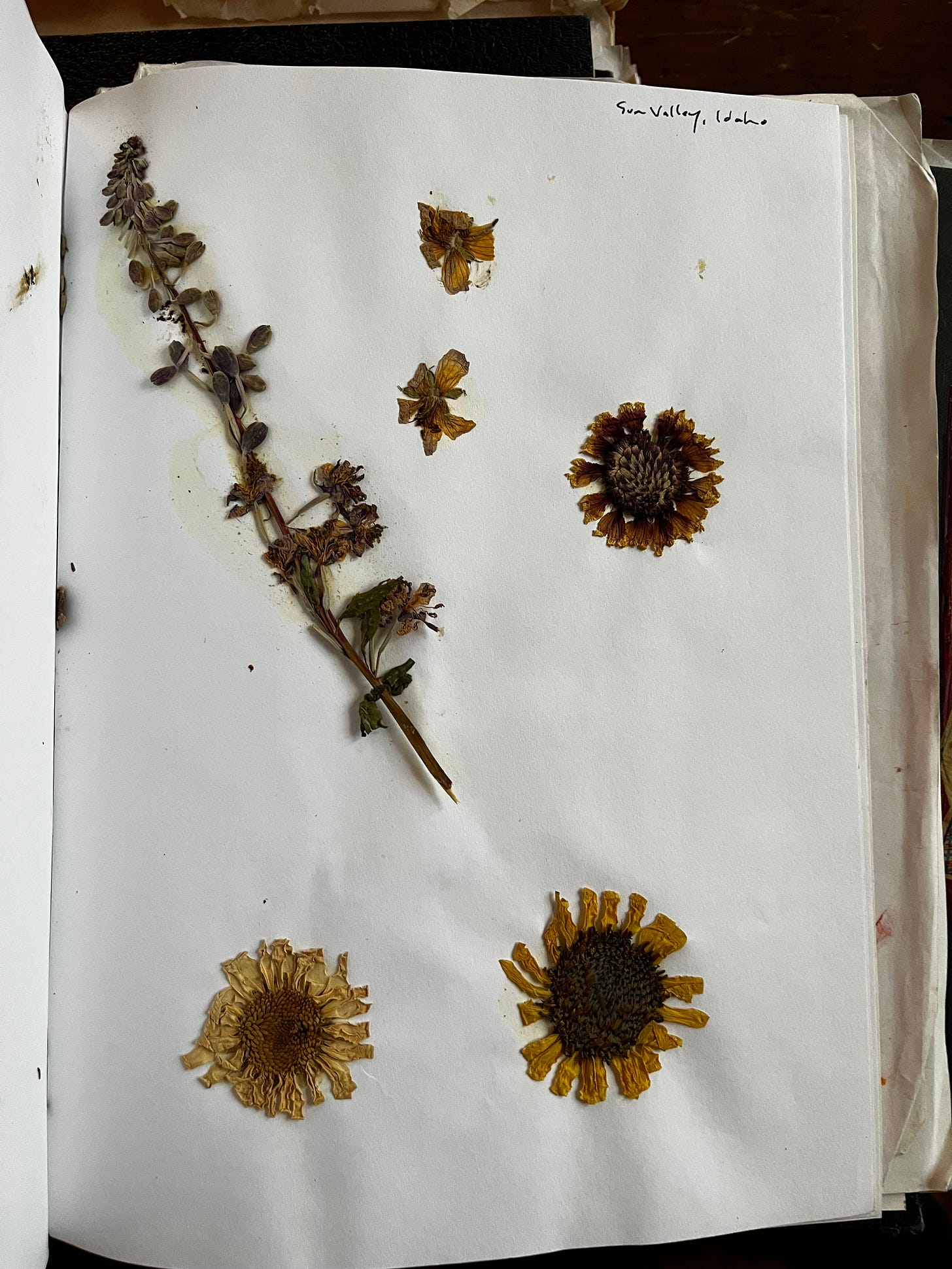
I also just love to remember the mundane things that would otherwise disappear into the ether. Just now, taking pictures of some old journals for this very interview, I reread a few pages from my notebook when I was in my early twenties and living in Chicago, and learned (or remembered, I guess), that I had been a fan of going to concerts alone (I truly did not recall this at all). Apparently I hated a barista job I remembered as being pretty amusing – there’s a long description of a daily interaction I dreaded with my most annoying regular customer. I didn’t remember any of this! And what I did remember, I’d transformed with a wash of nostalgia. I feel so lucky to have these primary sources of my own life.
More About Amy Shearn:
Amy Shearn is the award-winning author of 5 novels including ANIMAL INSTINCT, out from Putnam Books now. Her work has appeared in the New York Times Modern Love column, Slate, Oprah Daily, Poets & Writers, and elsewhere. After working in editorial for many years, Amy now runs writing retreats, works 1:1 with writers, and teaches creative writing at private writing workshops including Writing Co-Lab, which she helped to found.
Social Media:
I'm Amy Shearn or Amy Shearn Writes on all the things basically but most active on Instagramhttps://www.instagram.com/amyshearnwrites
Promo bits:
My new novel, Animal Instinct!
My substack, How to Get Unstuck!
Writing for Women on the Verge!
The Red Clover Writing Retreat!
Whew the hustle is real!
Thanks for reading The Magpie by Kelly McMasters! As always, more of what I’m up to can be found on my website, and you can follow me on Instagram for day-to-day updates.
Buy The Leaving Season here, Welcome to Shirley here, Wanting: Women Writing About Desire here, and This is the Place: Women Writing About Home here.


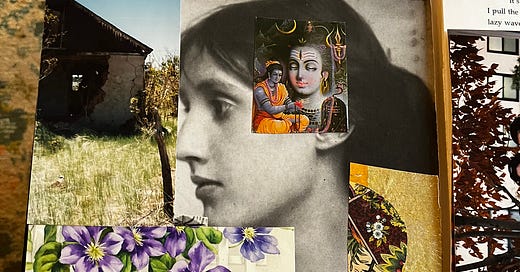



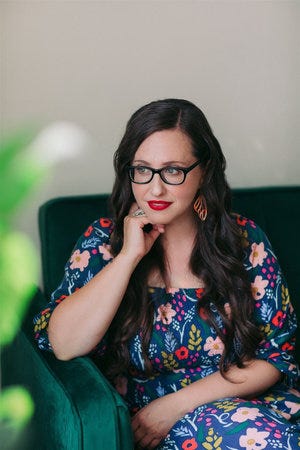

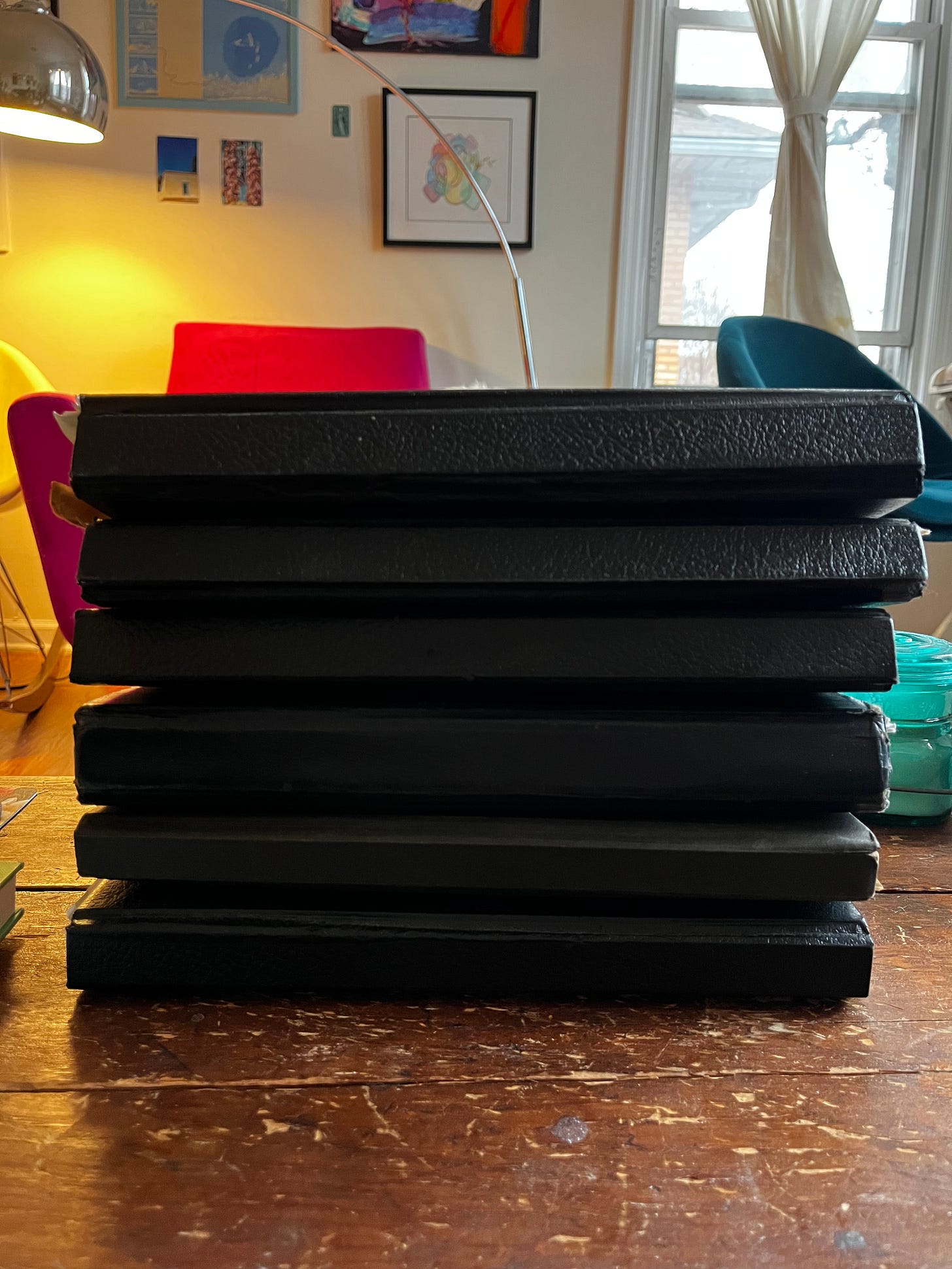

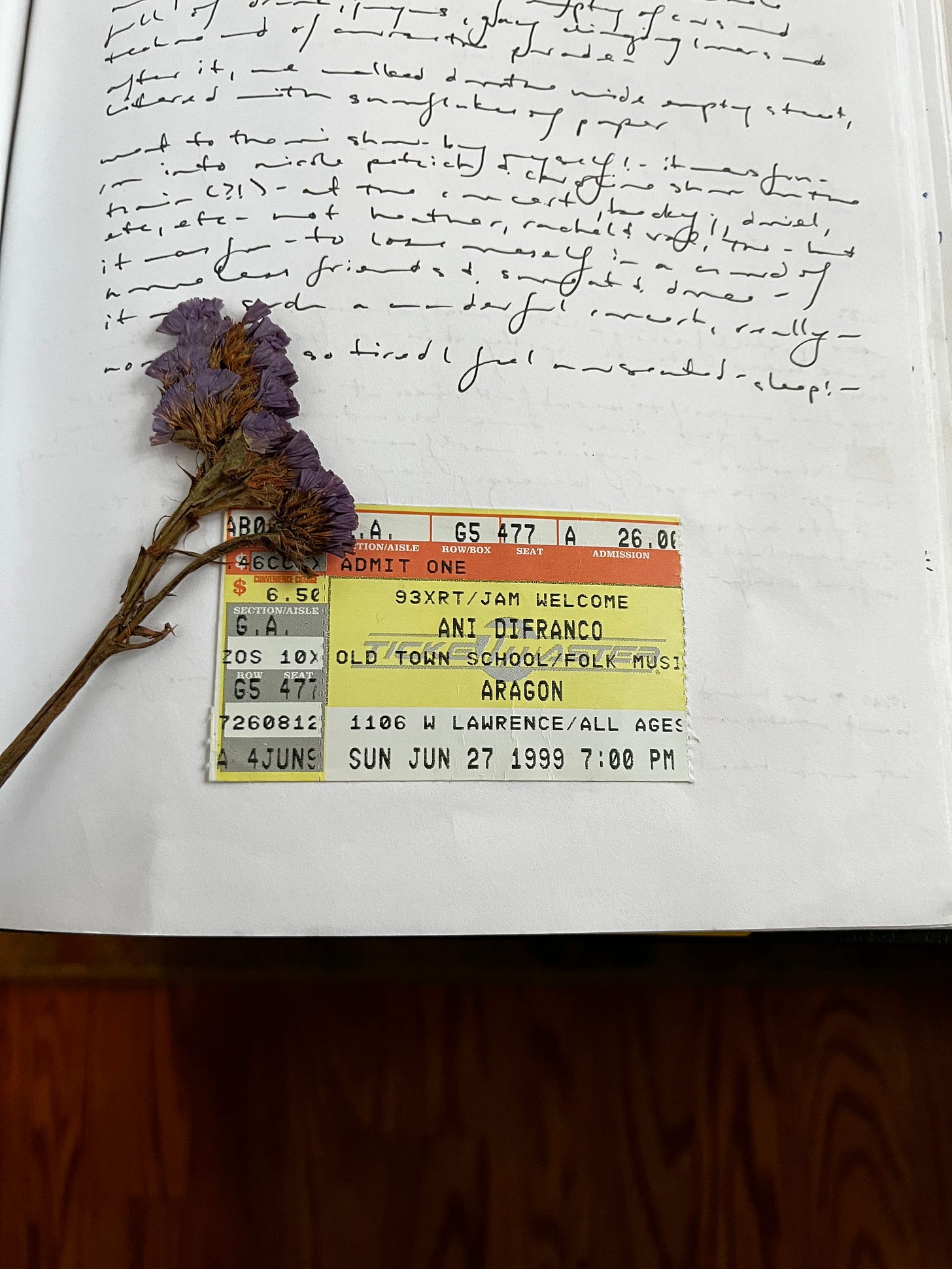


Oh yay this was so much fun! Thank you Kelly! ❤️❤️
Love this! It’s true that repeated patterns in old journals remind us of issues we’ve been struggling with for a while. It’s great to have that proof to combat internal or external gaslighting.